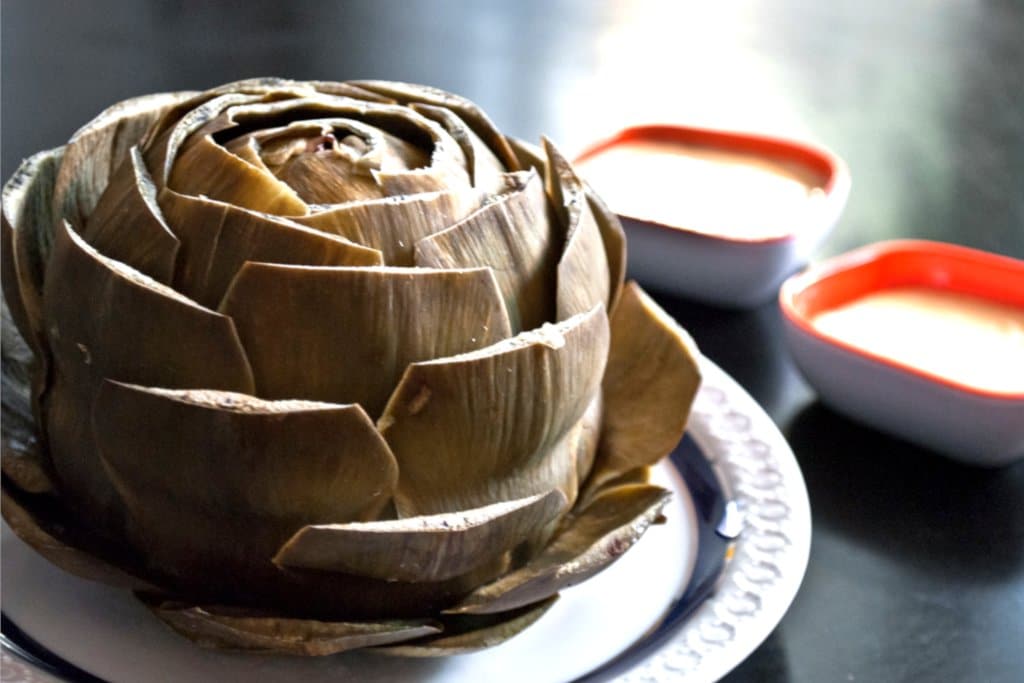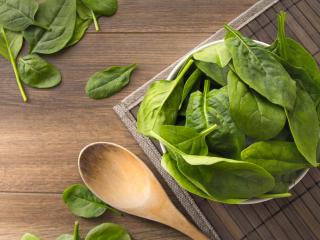Artichoke (Cynara scolymus) is a perennial vegetable plant native to the Mediterranean area.
A wild thistle originally, artichoke became the plant we know after generations of cross-breeding and selections.
A high source of fiber and many vitamins, artichoke has powerful antioxidant properties and brings the body many health benefits.
- Vegetable patch: how to grow artichoke
Health benefits of artichoke
- Artichoke is a prime source for dietary fiber that contributes to preventing cardiovascular diseases and helps regulate certain types of diabetes. Fiber also helps control appetite by quickly bringing on the feeling of being satiated.
- Thanks to its high potassium, magnesium, calcium and iron density, artichoke is great for remineralizing.
- Used in olden days in the countryside to treat jaundice and generalized edema, artichoke has today become a specific medicine for the liver. It is choleretic (stimulates bile production), cholagogue (increases flow from the gall bladder to the intestines) and diuretic (increases urine volume).
- Artichoke supports the entire urinary evacuation function (infectious diseases, food poisoning) and intestinal process (digestive disorders, intestinal pain).
- Generally, artichoke is precious to treat liver-related disorders: jaundice, gallstone, intestinal food poisoning.
- Artichoke also has purgative, appetite-enhancing and stimulating properties.
- However, opposite to popular belief, eating artichoke doesn’t have any positive effects on the liver! Indeed, leaves are where all the active ingredients are located, not the vegetable portion that is usually eaten. To stimulate your liver functions, use an artichoke decoction: 1 oz (30 g) leaves for 1 quart (1 liter) boiling water, to drink before each meal (warning: very bitter!).
Growing artichoke for its health benefits
- Artichoke appreciates mild climate, warm and full sun exposure. Soft soil, rich with humus and well drained, suits it well.
- Note that artichoke is vulnerable to frost spells: protect your plant when temperatures start dropping.
- Plant your artichoke between rows of radishes, lettuce and carrots, and remember to add manure upon planting.
- In pots, you’ll get good results for about three years by growing artichoke in a container at least 16 inches (40 cm) deep.
- Be on the lookout for aphids, caterpillars and other ringworms that particularly love artichoke and attack its leaves and stems.
- Vegetable patch: how to grow artichoke
Cooking artichoke for its health benefits
- Artichokes can be eaten hot or cold, cooked in water or steamed, with sauce or dressing.
- Smaller violet artichokes, very young, are sold and these haven’t yet developed the inner strands. They can be eaten raw, sliced in strips with a spicy dressing.
- Note that cooked artichoke will oxidize fast which can lead to building up poisonous compounds if you keep it for too long (even in the refrigerator). Eat it within 24 hours.
Nutritional content of artichoke
40 kcal / 3.5 oz (100 g). Artichoke has high levels of vitamin A, B, C, PP and minerals (iron, calcium, magnesium, sulfur, manganese, phosphorus).
This is a typical “old maid’s remedy” to alleviate the liver, enhance biliary functions, prevent disorders due to cholesterol and clean the body of the toxins that accumulate in it.
Image credits (edits Gaspard Lorthiois):
CC BY-NC 2.0: Martin Kleppe
CC BY-NC 2.0: Martin Kleppe





I have a question
Ask my questionI'd like to comment
Post a commentNo comments yet – be the first to share your thoughts!